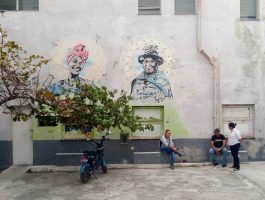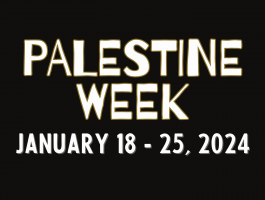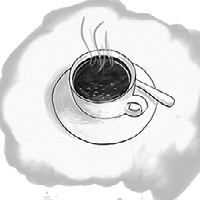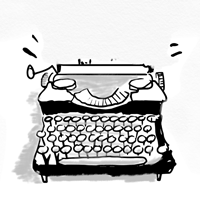
With the recent HBO series and our country’s current administration, Margaret Atwood’s The Handmaid’s Tale (Anchor Books, $15.95) is more relevant than ever. The book, which has been a staple of both feminist and dystopic fiction since its publication in 1986, feels shocking relevant today. Set in the fictional Republic of Gilead, Atwood follow the life of a handmaiden, one of a rapidly declining population of fertile women who are given the Gileadean elite to be regularly and ritually raped.
In many ways it’s a deceptively simple premise; a story of totalitarianism, of control, and of misogyny, but it’s the detail and care with which Atwood has created her nightmare world that truly sets the book apart. Emotional, political, and historical details come together to make a believable landscape in which the abhorrent may come to pass, but perhaps the most terrifying aspect of the story is in the mundanely recognizable nature of Gilead. Indeed, despite being over thirty years old Gilead feels alarmingly close. Our own world may be changing rapidly, but something about the story is changing with us, for Atwood has grounded her fiction in the rather unforgiving realities of our own histories and our own societies.
In a 2006 interview with Valerie Martin, Atwood explains that in researching her book she made sure that every Gileadean horror had a real life counterpart. That is to say that for every torture and indignity within her novel an austere reader will be able to track down an historical precedent (in all actually an astute reader is more than likely to find a depressing abundance of historical precedents).
Along with these material parallels there are theoretical ones. In the same interview Atwood further informs us that The Handmaid’s Tale is “a book about what happens when certain casually held attitudes about women are taken to their logical conclusions.” One can easily see the intellectual familiarity behind so much of Gilead, the specifics may be extreme, but the structure is one with which we are all too familiar.
It’s that ideological familiarity that brings a certain sharpness to The Handmaid’s Tale; after all, the best horror is that which is all around us. Just around the corner, just in the shadows, just under the surface; and reading The Handmaid’s Tale it is all too easy to feel our own ideological monsters all around us.
This review was generously provided by Bookseller Aliza Cohen of Busboys & Poets Books. You can find The Handmaid’s Tale along with other “feminist and dystopic fiction” (and more) at one of our four bookstore locations. For more information, please check out www.busboysandpoets.com





